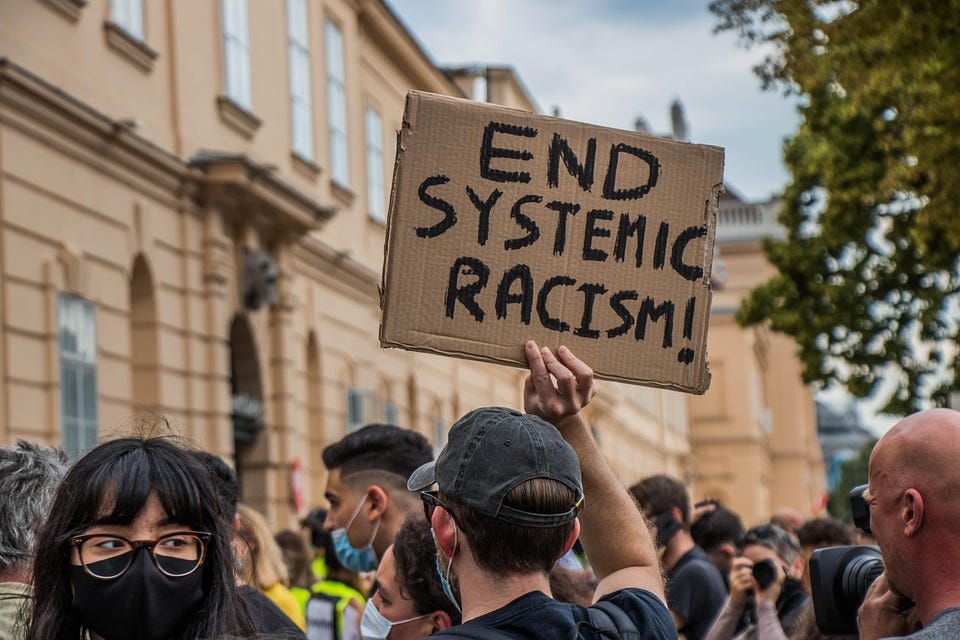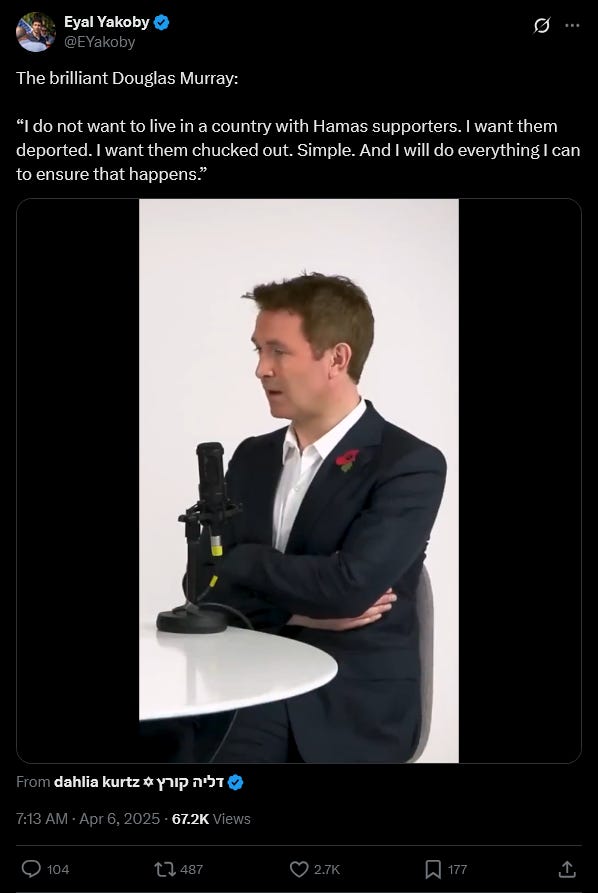E-Pluribus | April 8, 2025
Universities abandon academic freedom—again; deporting college students for wrongthink; jail time for 'offensive' online speech?
A round-up of the latest and best musings on the rise of illiberalism in the public discourse:
Nico Perrino: Universities abandon their commitment to academic freedom at the worst time
Over the last decade we’ve watched universities abandon their commitment to academic freedom in the name of DEI and related social justice causes. Nico Perrino, executive VP of the Foundation for Individual Rights and Expression (FIRE), argues that Ivy League schools are doubling down on that cowardice by complying with Trump Admin demands to restrict student speech:
Government censorship is far worse than private censorship. This was the issue litigated in Moody v. NetChoice, where the Supreme Court said, “On the spectrum of dangers to free expression, there are few greater than allowing the government to change the speech of private actors in order to achieve its own conception of speech nirvana.”
These are private universities. The government can no more dictate speech codes to private social media companies than it can to private universities, even if we also take issue with how private institutions exercise their First Amendment rights.
… So far, the universities have largely capitulated. They’ve abdicated whatever remained of their commitment to their missions. You cannot maintain your truth-seeking mission in an environment where the feds control the free speech and academic freedom rights of your students and faculty.
The capitulation is shortsighted. Don’t pretend capitulating will end the demands. As the Harvard letter notes, the feds’ demands are “broad” and “non-exhaustive.” Behavior that gets rewarded gets repeated.
Sarah McLaughlin: Silencing Rümeysa Öztürk makes all of us less free
Writing at the Boston Globe, Sarah McLaughlin takes that fight directly to the administration, blasting the Department of Homeland Security for arresting a Fulbright scholar and Tufts University student because she penned an allegedly “Pro-Hamas” op-ed:
For decades, American higher education has often fallen short of that aspiration but nevertheless served as a beacon for such voices — those who wish to speak, study, and research without interference.
But with each passing day, that freedom is increasingly trampled underfoot by an administration willing to torch the liberties that define American higher ed — and American life more broadly — all in the name of silencing whoever it deems to be “pro-Hamas.”
…
In what may be the most disturbing example yet, Tufts University PhD student and Fulbright scholar Rümeysa Öztürk was handcuffed and taken away by plainclothes officers while on her way to break her Ramadan fast on March 25. She was transferred the next day to the Central Louisiana ICE Processing Center.
The Department of Homeland Security has offered little explanation for Öztürk’s detainment, other than DHS Assistant Secretary Tricia McLaughlin’s post claiming Öztürk “engaged in activities in support of Hamas” and was “[g]lorifying and supporting terrorists who kill Americans.”
…
The only material … in Öztürk’s case is a student paper op-ed she coauthored pressuring Tufts leadership to “acknowledge the Palestinian genocide” and “disclose its investments and divest from companies with direct or indirect ties to Israel.” Tufts has since said that the op-ed did not violate any of their policies.
Charlie Parker, Yennah Smart, George Willoughby: Police make 30 arrests a day for offensive online messages
The Times reports that UK police departments arrest thousands of people every year for posting supposedly “grossly offensive” messages online—which apparently include pictures of edgy Halloween costumes:
The police are making more than 30 arrests a day over offensive posts on social media and other platforms.
Thousands of people are being detained and questioned for sending messages that cause “annoyance”, “inconvenience” or “anxiety” to others via the internet, telephone or mail.
Custody data obtained by The Times shows that officers are making about 12,000 arrests a year under section 127 of the Communications Act 2003 and section 1 of the Malicious Communications Act 1988.
…
There are several reasons for arrests not resulting in sentencing, such as out-of-court resolutions. But the most common is “evidential difficulties”, specifically that the victim does not support taking further action.
There has been an outcry about police “overreach” and fears that officers could be “curtailing democracy” by arresting people for malicious communications offences.
The Times reported last week that Hertfordshire police sent six officers to detain a couple and put them in a cell for eight hours after their child’s primary school objected to the volume of emails they sent and “disparaging” comments made in a WhatsApp group.
Maxie Allen, 50, and Rosalind Levine, 46, were questioned on suspicion of harassment, malicious communications and causing a nuisance on school property. After a five-week investigation, the police concluded that there should be no further action.
Around X
Commenting on The Times report, Greg Lukianoff says the UK is on a record-breaking arrest streak:
Douglas Murray rejects the “centrist dad hand-ringing” of people who say that deporting Hamas sympathizers is a threat to our liberal values. We simply can’t extend tolerance to people who don’t extend it back to us, he argues:
Colin Wright highlights some troubling poll results showing that many on the left believe assassination may be a reasonable solution to political disputes:










Right on target:
https://unbekoming.substack.com/p/the-institutional-suppression-of